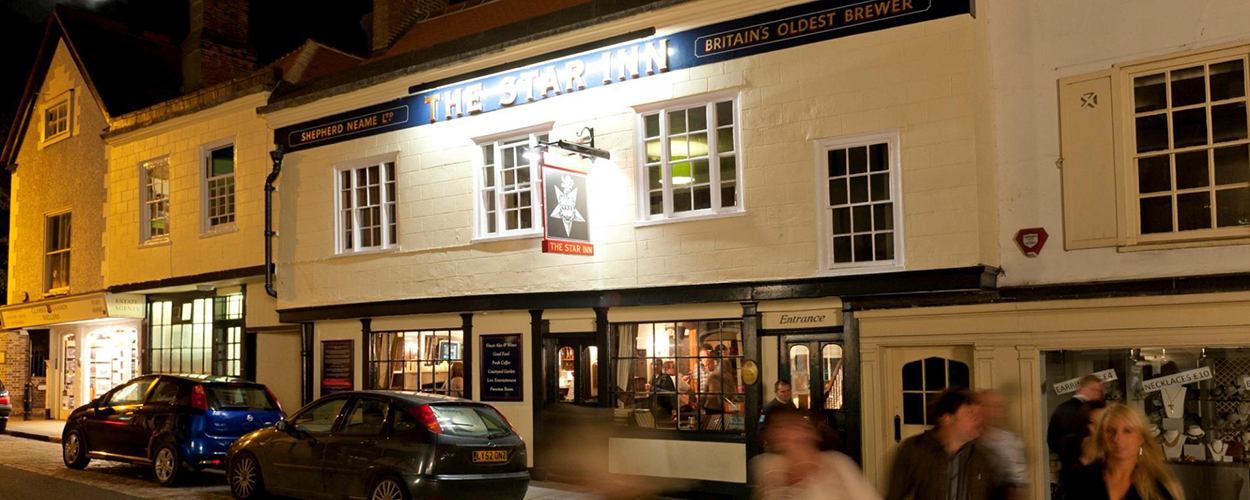This website uses cookies so that we can provide you with the best user experience possible. Cookie information is stored in your browser and performs functions such as recognising you when you return to our website and helping our team to understand which sections of the website you find most interesting and useful.
Business News Legal Live Business
Guildford venue successfully appeals noise abatement order after court applies the agent of change principle
By Chris Cooke | Published on Tuesday 2 July 2019

The Music Venue Trust has welcomed a ruling in Guildford Magistrates’ Court in which a noise abatement order, issued against a local venue following a complaint by the developer of new block of flats, was quashed.
Guildford Borough Council issued the noise abatement order last October against the Star Inn, a pub in the town that stages live music. The Council acted after receiving a complaint from the developer of a new block of flats nearby. The pub’s owner, the Shepherd Neame brewery, appealed the order, arguing that complying with it would cost a significant portion of the business’s revenue and could therefore potentially force the venue to close.
The complaining developer had, or course, chosen to convert an office block next to an existing music venue into a residential property. Common sense would say that if you choose to put new flats next to an existing music venue, then it’s your responsibility to deal with any resulting issues with the noise that comes from that existing venue. Although in the past, when situations like this have arisen, common sense has not always prevailed.
Hence the ultimately successful agent of change campaign in the UK, that sought to amend the guidelines used by the planning committees of local authorities, so that those committees make it the responsibility of developers putting residential properties next to existing venues to both anticipate and counter any future noise issues.
Explaining the flow of logic behind the decision to quash Guildford Borough Council’s noise abatement order in relation to the Star Inn, judge Nick Wattam stated: “The Star was said to have only been a nuisance because of [the new flats] existing. It wasn’t a nuisance before the conversion of the office building into flats. The venue has a useful or reasonable use. Matters in the venue are carried out in a lawful way. The venue is no greater nuisance now than when the building was first converted”.
The pub’s general manager Georgina Baker told Surrey Live: “This has been going on for basically a year, so we’ve had a whole year of not knowing whether we can carry on with our music, whether we can keep booking bands”.
She added that the real problem was a flawed system when the local council considered the planning application to convert an office block into flats all the way back in 2013. Officials should have recognised the potential issues with those new flats being adjacent to an existing venue and should have ensured that the developer was working to deal with those issues as part of the conversion work. Which, of course, is the kind of logic that the agent of change principle says planning committees should always employ.
Commenting on the court’s decision to quash the noise abatement order, Baker added: “It’s such a high, we had no idea which way the decision was going to go even until we adjourned today. It’s so nice that we’ve now got the go-ahead, we can carry on, we can go back to doing our live music and our local bands – that’s what the lifeblood of this pub is”.
In a post on Facebook, the Music Venue Trust, which campaigned for agent of change alongside the likes of the Musicians Union and UK Music, said: “Attention all developers: Stop and read this judge’s decision carefully. Our door is open to all developers that want to talk sensibly about how to build around grassroots music venues in a manner that protects culture and beloved community spaces”.
The post went on: “Let this case be the end of trying to work around agent of change or bend the law or planning guidance. Let it be the start of building great housing that protects our cherished grassroots music venues”. It then concluded: “Congratulations to the team at the Star. Absolutely brilliant!’





